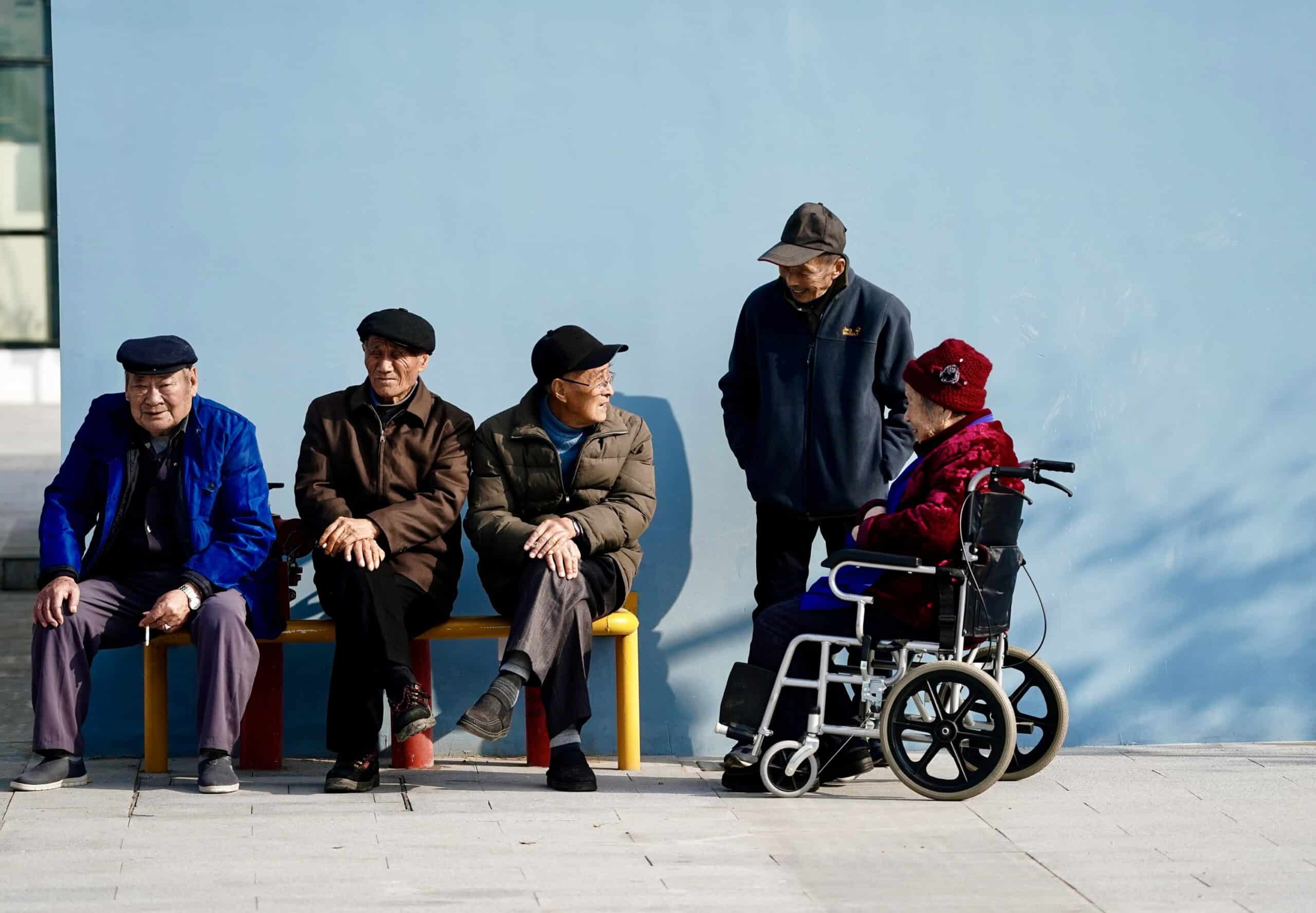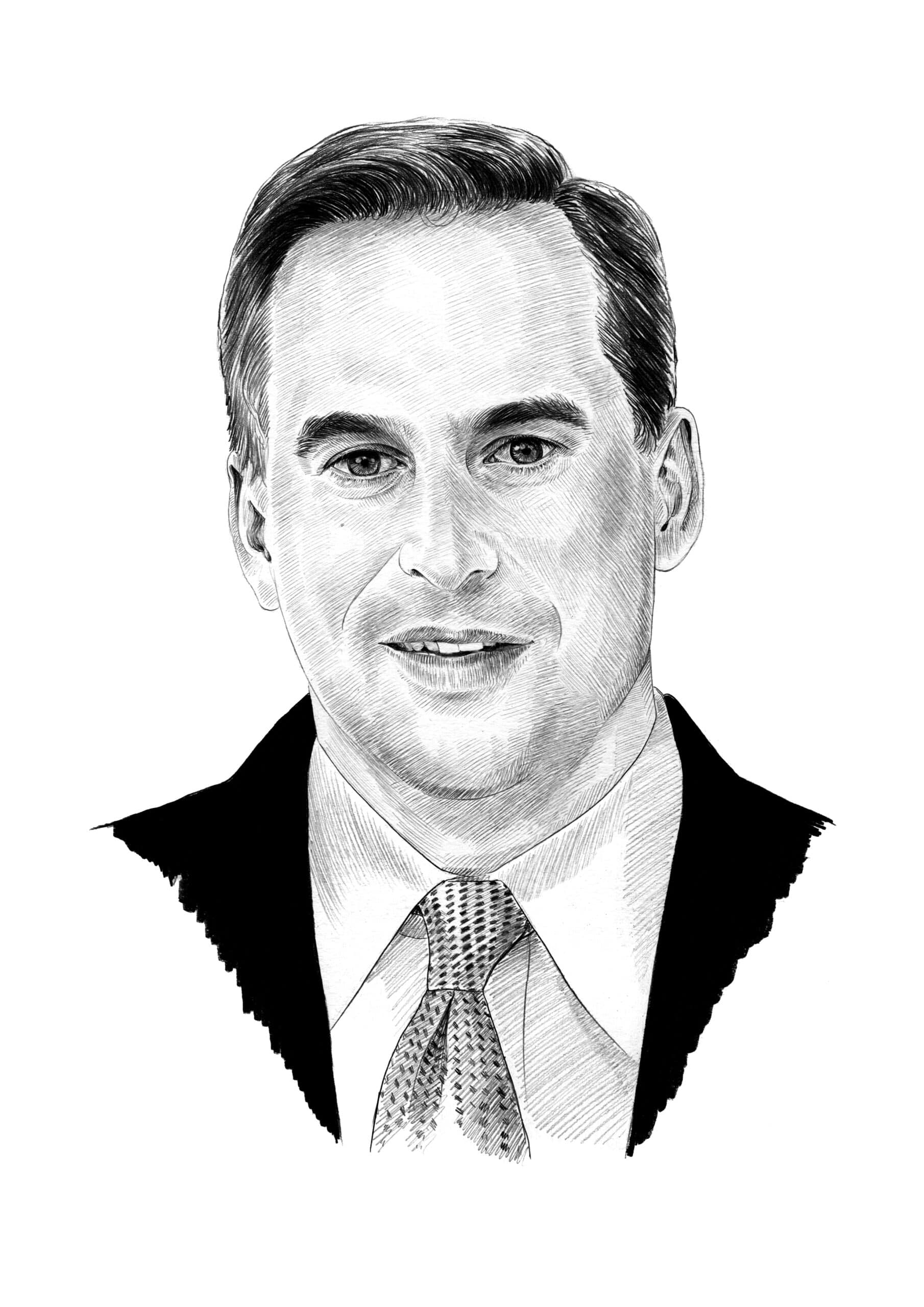Matt Pottinger played a crucial, behind-the-scenes role in the Trump administration’s break with decades of bipartisan agreement about engagement with China. Pottinger felt that U.S. leaders had deluded themselves into thinking that wrapping China more tightly into the U.S. economic orbit would change the way Beijing governed. He came to these views in an unusual way for a China policymaker. He began his career as a journalist in China for Reuters and The Wall Street Journal. (We overlapped at the Journal but didn’t work together on stories.) After the September 11 terrorist attacks, he enlisted in the Marines at age 31 and worked in Afghanistan for Gen. Michael Flynn, who later became President Trump’s first national security advisor and recruited Pottinger to be his Asia chief at the National Security Council. Pottinger became a skilled bureaucratic operator. He outlasted three Trump national security advisors and was ultimately named deputy national security advisor. He resigned on Jan. 6, 2021 when the Capitol was stormed by protestors. This interview is part of Rules of Engagement, a new series by Bob Davis, who covered the U.S.-China relationship at The Wall Street Journal starting in the 1990s. In these interviews, Davis asks current and former U.S. officials and policymakers what went right, what went wrong and what comes next.

Illustration by Kate Copeland
Q: You have an unusual resume for a China policy person. Why were you interested in China and how did you pursue your interest?
A: I became interested in China as a high school student in the mid and late 1980s. I studied Chinese language and I had planned on attending a summer exchange program that would have put me in a Chinese school not far from Tiananmen Square.
Days before we were supposed to leave [for China], the Tiananmen massacre took place [in 1989]. Our trip was canceled but that event was fateful for me personally. It’s the thing that got me interested in current events. I began reading the news every day, and it got me interested in both journalism and in China.
I didn’t make it to China until four years later when I was a college student,1Pottinger earned a bachelor’s degree from the University of Massachusetts, Amherst. majoring in East Asian languages and literature and also studying history. I spent a year as an exchange student during college in Beijing, and then I spent a year in Taiwan, right after college. From there, I joined the Reuters news agency to cover Beijing.
Early in my career as a journalist in China, when I was writing for Reuters, I covered the negotiations to bring China into the WTO. I was among those who were optimistic that this would unleash not just economic growth, but reforms that would further liberalize the Chinese economy.
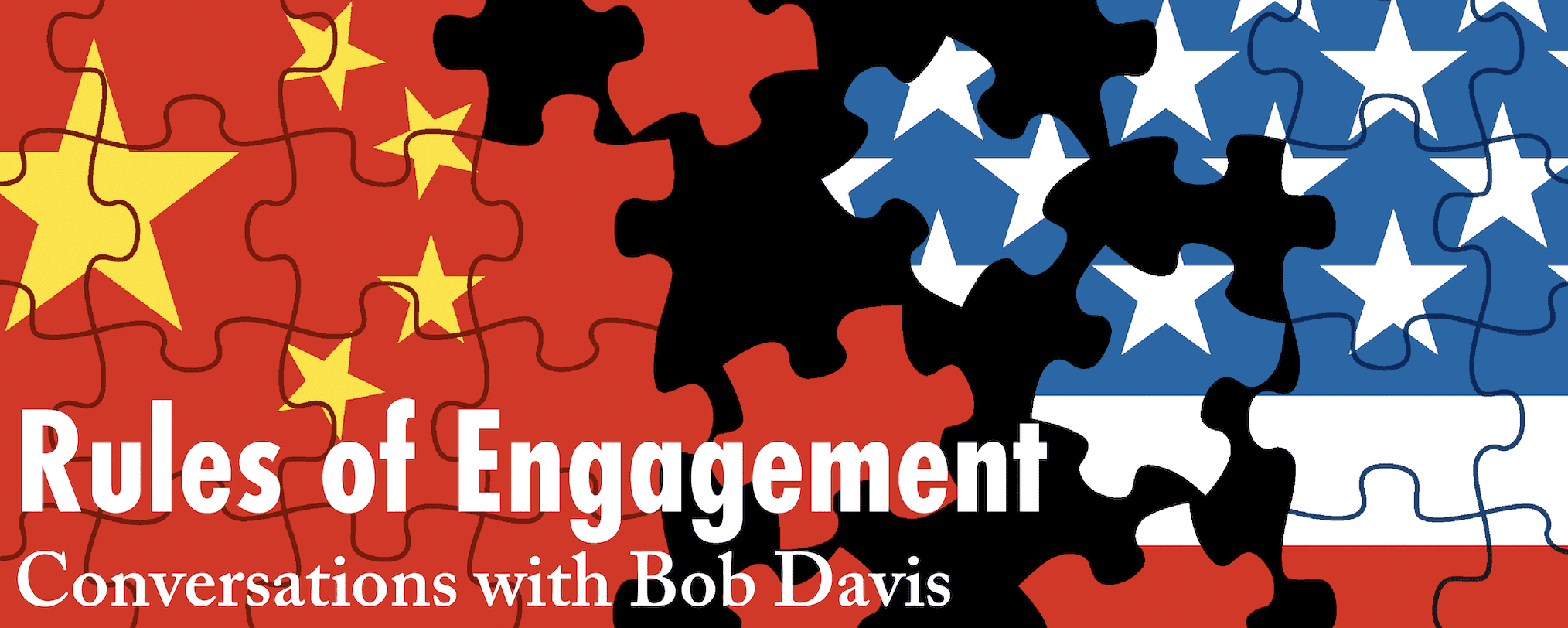 |
|
| Illustration by Sam Ward. | |
| More in this series: | |
| Charlene Barshefsky on Why Engagement with China is More Important Than Ever |
 |
It was an optimistic time to be in China working as a reporter. In the late 1990s, you had a huge migration of talented people from the countryside to major cities like Beijing. It was the beginning of the telecoms and internet revolution. Plus, a lot more Chinese students were going abroad, and some of them were coming back to work for foreign multinational companies.
As time went on, it began to sink in that the big assumption that we had all made — that China would liberalize — may have been misplaced. Some of the stories that I reported on probably accelerated that viewpoint for me. I covered a lot of stories about corruption in China. Most of the corruption I saw was a feature of a Communist single-Party system which had no rule of law and no independent press.
And I had run-ins with the Chinese security apparatus, both times while covering corruption stories. One related to China’s yellowcake production for its nuclear program. The other was a perennial story about how local party officials were forcing farmers off their land in order to sell it to other party officials to build up industry and goose China’s GDP figures. I got to meet a lot of people whose lives were destroyed.
| BIO AT A GLANCE | |
|---|---|
| AGE | 49 |
| BIRTHPLACE | Washington, D.C., USA |
| POSITIONS | Former Deputy National Security Advisor. Currently Chairman of the China Program at the Foundation for Defense of Democracies, and Distinguished Visiting Fellow at the Hoover Insitution. |
| MARITAL STATUS | Married to Yen Pottinger. |
Then there was the SARS epidemic in late 2002, early 2003. I was one of the lead reporters covering that epidemic, and I learned a lot about how the Party operates. It was the nature of the single-Party Leninist system to cover up an epidemic that luckily ended up petering out. It was a prototype for the highly destructive pandemic we would see 17 years later.
The stories I covered forced me to revisit some of the more optimistic assumptions that I made earlier in my career.
From there, you went into the military and then, as I understand it, you did research on China for a hedge fund.
I founded my own company first, which was an investigative, due-diligence firm, called China Six, LLC. I had a small team that was doing on-the-ground research in China on behalf of American investment firms to help them understand what was really going on with some of the companies they were considering investing in. One of the companies that I investigated ended up getting kicked off the New York Stock Exchange.
After doing that for a few years, one of my clients, a multi-strategy hedge fund [Davidson Kempner Capital Management] in New York, brought me on board to do investigative research for them — not just on China, but around the world. I worked there for a few years until I was unexpectedly invited to come work at the White House after the 2016 election.
You were recruited by General Mike Flynn. You had worked with him in Afghanistan. He comes off now as a conspiracist. What was he like at that point?
After the 2016 election, I was invited to brief the transition team by General Mike Flynn, who I had worked closely with in 2009-10 in Afghanistan, as well as by his incoming deputy national security adviser, K.T. McFarland, who is a friend from New York.
Mike Flynn was a very effective wartime intelligence officer who was iconoclastic. He was someone who was willing to radically change the ways we were fighting and the ways in which we were conducting intelligence operations and analysis when he saw that those operations and ways of doing business were failing. He was not someone who was seeking promotions. He was someone who was very much focused on winning the war. He gave an enormous amount of leeway to his subordinates, myself included, to be imaginative in trying to troubleshoot and fix systems that were not helping us win our fight against the Taliban and other terrorist organizations. So I had a very good collaboration with him in 2009 and 2010.
Coming into the White House, what was your view of the fairly bipartisan approach [prior administrations had taken] towards China, which prized engagement?
I was a firm believer that our policy consensus, which had persisted since soon after the end of the Cold War, had failed, and that we were on the wrong track. It was never going to achieve what it set out to achieve, which was fundamentally the remaking of China.
I thought that we were behaving as though we were blind and deaf to the reality of the Chinese Communist Party’s ambitions…
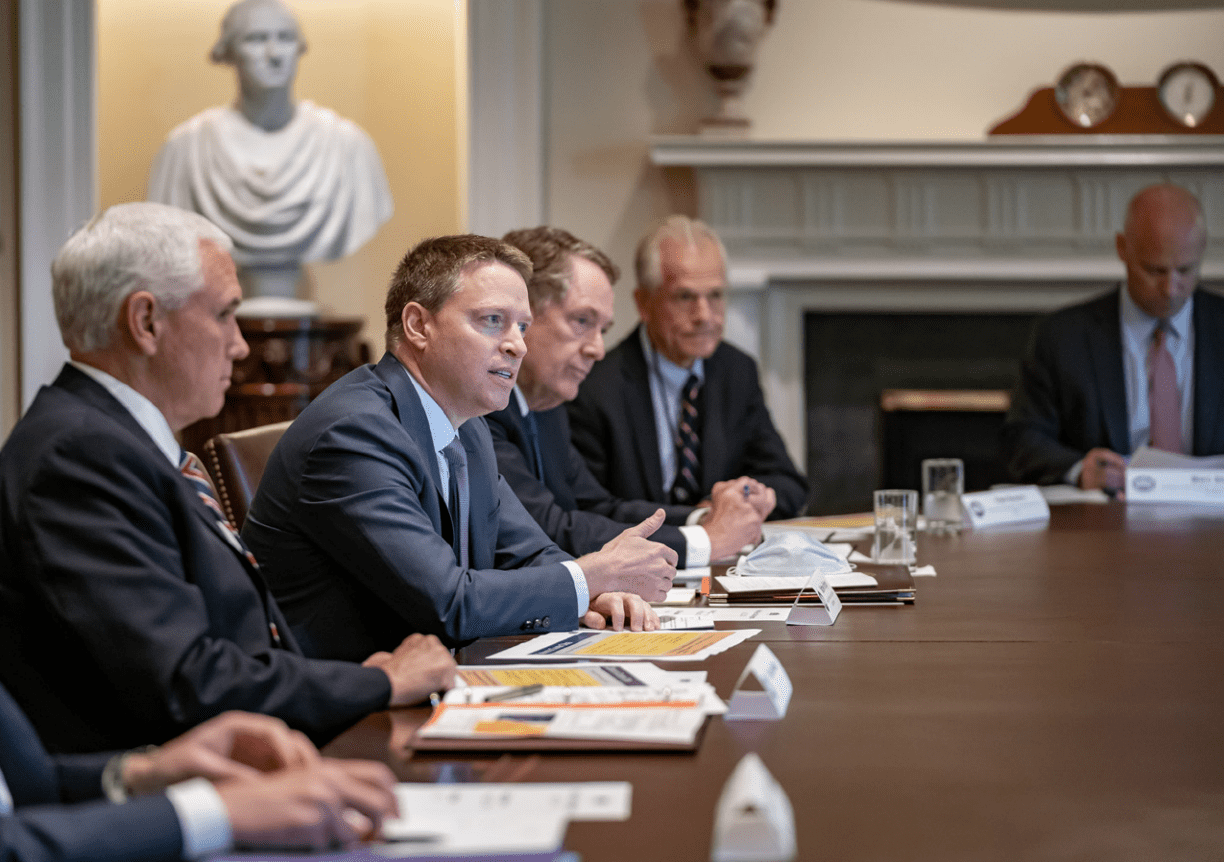
I wrote a 12-page paper for the transition team after Trump was elected, laying out what I thought our policy direction should look like. And I laid out what constituted a paradigm shift. I had heard President-elect Trump’s rhetoric that our policy was a failure and that the Chinese Communist Party was taking advantage of the United States. And so I thought it was conceivable that his general attitude about China might sync with some of my ideas.
That paper became the basis for my being invited to work at the White House. In many respects, it became the basis for our Indo-Pacific strategic framework, which was a strategy document that we completed in the first year of the Trump administration. It was declassified at the very end of the Trump administration.
What did you think the paradigm was and what needed to be shifted?
The most important assumption that had underlined a quarter-century of our policy towards China was the idea that through trade we could liberalize not only China’s economy, but its society and even its politics. That comes through in the speeches of President Bill Clinton, and in the speeches of senior members of the Bush administration, including Bob Zoellick.2Zoellick will appear in an upcoming Q&A as part of the Rules of Engagement series. It also came through in some of the rhetoric and policy documents of the Obama administration. It was the idea that through engagement we could change China and reassure China that we are not a threat.

The evidence, though, really mounted over the course of those 25 years that China would, in fact, work very hard to subvert U.S. power and influence — first within China, then regionally, and then globally. I thought that we were behaving as though we were blind and deaf to the reality of the Chinese Communist Party’s ambitions, its hostility to the end-state that we were trying to achieve, and its resourcefulness in working to achieve its ambitions globally.
So you came into the White House under a president whose anti-China views were a big part of the campaign, and who thought that the U.S. was getting played by the Chinese, economically. But it’s also fair to say he didn’t know much about the specifics and was doubtful of alliances. And obviously there was a lot of concern about Trump as a personality.
I didn’t know what to expect. President-elect Trump during the transition was just trying to put together a team. Every presidential transition is pretty chaotic in some respects, certainly frenetic.
Mentors of mine strongly urged me to go into the administration. I come from a tradition that when a president of the United States asks for your service, you salute and render service. I had served as a commissioned officer in the military under Presidents Bush and Obama.
A message from Matt Pottinger posted to YouTube titled ‘Reflections on China’s May Fourth Movement: An American Perspective’. Credit: Trump White House Archived
In ways that I think are still poorly understood by outside observers, the dynamic that emerged was one in which there was a kind of good-cop, bad-cop routine. It played out against our adversaries, but it also applied to some of our allies that were not carrying their weight.
In the case of our state adversaries, all of whom are run by dictators, President Trump’s approach was to maintain a respectful line of communication. In that kind of system, he believed the only person who can make decisions is the dictator himself, and not the mid-level foreign ministry officials below him. At the same time that President Trump would maintain a respectful open channel with dictators, he approved plans by his government to apply increasing pressure, both economic and military, against those same dictators’ regimes. That was certainly true of North Korea.
We really flipped the paradigm on its head. The paradigm for a quarter-century had been for mid-level State Department officials to have years of dialogue with mid-level regime officials, who would ultimately make some kind of a promise in exchange for us reducing concrete pressure on their economies. And every time we would get egg on our face. The regime would not make good on its promises, yet we had just reduced economic pressure in a way that allowed them to grow their economies and their spending on nuclear weapons and other military programs.

We took the opposite approach over the course of 2017. [Former U.S. Ambassador to the United Nations] Nikki Haley got four U.N. Security Council resolutions through which massively increased economic constraints on North Korea and did so with the support of the People’s Republic of China and other members. We had this strange paradox, starting in 2018, of an increasingly warm channel between the two leaders alongside increasingly tight economic sanctions. That’s a much better pattern than the inverse, where we don’t talk at all at the leader level, but we have soft, half-assed sanctions applied towards that regime.
The same was true of Russia, where President Trump made all sorts of sometimes flattering statements about Vladimir Putin. At the same time, his administration did things that were much tougher against the Russian regime than the Obama administration, such as selling lethal weapons for the first time to Ukraine.
If you look at the concrete record of what we did, we were much, much tougher on Russia than the Obama administration had been, except rhetorically at the leader level. It’s kind of an interesting paradox. In my view, it was much more effective.
But the way it came across was that Trump was entranced with dictators and not engaged with the details.
You have to zoom out, because the people who were most entranced were the media, who could not see beyond that dynamic. Of course, a lot of Americans, at a minimum, were scratching their heads too.
| BOOK RECS | |
|---|---|
| The Dark Valley: A Panorama of the 1930s | Piers Brendon |
| Witness | Whittaker Chambers |
| Our Fighting Faith | James Bryant Conant |
If you look at what our government was actually doing to the Russians, you have a much more effective foreign policy in aggregate than we had pursued before. Previously you had moralizing and virtue-posturing by American leaders but a wimpy approach when it came to where the rubber meets the road.
The same is true of China. President Trump spoke frequently with Xi Jinping. He put a lot of time into his personal diplomacy — on the phone, in letter writing and in-person meetings.
But our policy was a radical departure from the past. We weren’t trying to continue a level-steady flight of engagement and letting our market and intellectual property be exploited by China. In fact, we started to impose tariffs and other remedies and costs on China, not only in the trade space but in the diplomatic realm, in terms of combating malign influence and espionage activities inside our borders. There’s a massive range of activities that we undertook, which in large part have been continued by the Biden administration.

What was it like being blindsided by Trump’s tweets?
I had more than one instance where I’d be meeting with foreign diplomats who would mention a tweet by the president that I hadn’t yet seen. I started a system of having my staff print out and run tweets to me that touched on foreign policy issues so I wouldn’t be blindsided.
It was one of President Trump’s idiosyncrasies that he used Twitter to communicate directly with the American people and with foreign counterparts. And with his own government, frankly. It was a challenge, but it was sometimes quite effective. For example, if President Trump was tweeting a warning to the Ayatollah, that carried a lot more weight than if it had just been a phone call from the Chairman of the Joint Chiefs of Staff to his rough counterpart in the Iranian military.
You were at Trump’s meeting in Buenos Aires with Xi Jinping in Dec. 2018, when the administration was about to impose tariffs on China. What did you make of Xi?
By that point, Xi had been in power for six years or so. He had consolidated power to such an extent that he was beginning to be much more unguarded about his true intentions, and I think that came through. The fig leaf of China’s “hide-and-bide” strategy [referring to Deng Xiaoping’s dictum of hide your capacities; bide your time] had really blown away. It was no coincidence that he had by that point revised China’s constitution to allow him to be the only person who was no longer constrained by term limits.
I think we know an enormous deal about [Xi’s] grandiose ambitions and how global in scope they are, and how antagonistic they are to everything we hold dear in the West
He would come very well prepared, having memorized his talking points. We know that because sometimes what he was saying matched perfectly with what his translator was reading, even though Xi didn’t have notes in front of him. He was trying to figure out how to manipulate, through flattery or other means, his way to a policy that would serve his interest.
He was largely flummoxed by President Trump. Every time he thought that he had figured him out and was on the verge of getting him to back off on tariffs, for example, President Trump would surprise him by sticking with those tariffs, or in some cases increasing them.

As the late, great Jim Lilley [U.S. Ambassador to China from 1989 to 1991] used to say, the [Chinese] playbook is to flatter their way to what they want, and when that doesn’t work to threaten their way towards what they want. And when that doesn’t work, they’re flummoxed. I think that’s where Xi Jinping ended up over the course of the Trump administration. He did not achieve what he hoped to achieve, and was not able to flatter his way to getting the United States to back off. Their playbook began to fail them.
We know a lot more about Xi now — those of us who pay attention to what he’s been saying in speeches that are addressed to his internal audience, the Central Committee of the Communist Party. We know an enormous amount about his grandiose ambitions and how global in scope they are, and how antagonistic they are to everything we hold dear in the West.
Did you see a difference in Xi from that Buenos Aires meeting in 2018 to the G-20 meeting in Osaka in June 2019? Former Trump National Security Advisor John Bolton has said that was the meeting in which Trump effectively gave Xi the okay to go ahead with his harsh policies in Xinjiang.
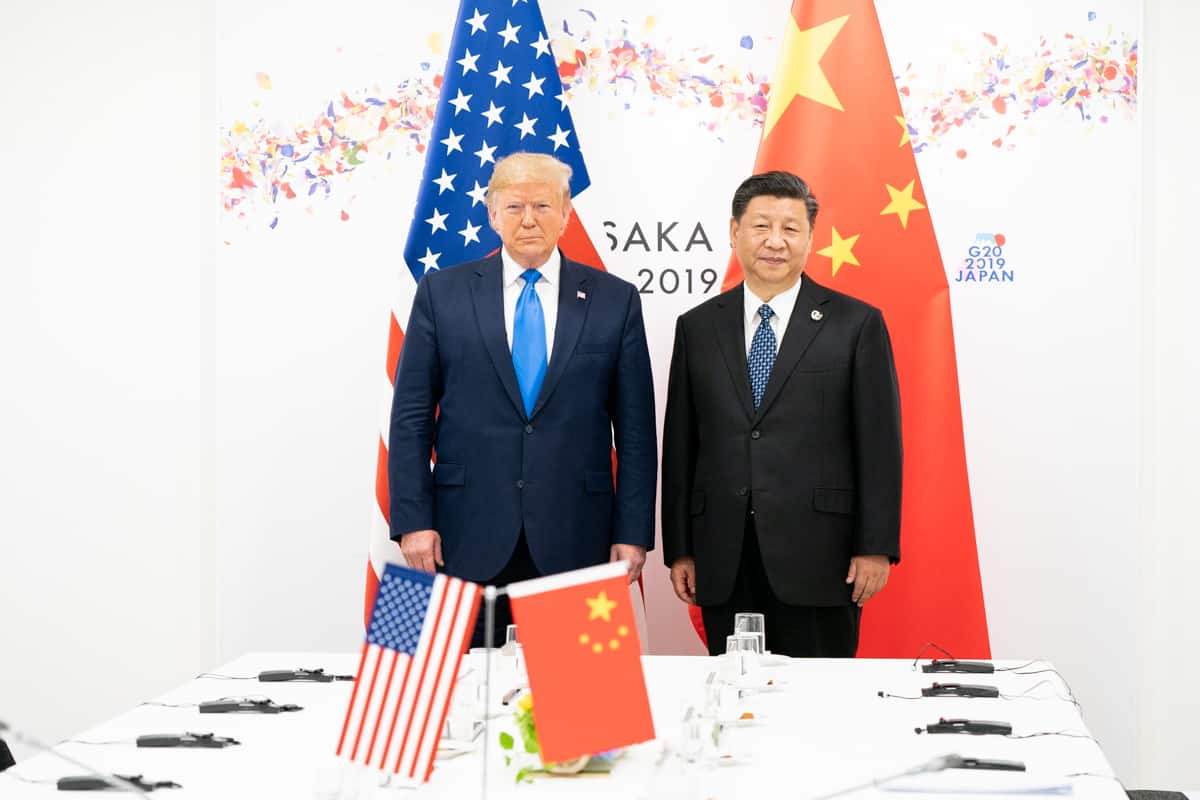
I don’t recall President Trump talking about Xinjiang in a group meeting with Xi. To the extent that there was a difference [with Xi at that meeting], it’s because there was a difference in the dynamic generally from Argentina to Osaka. China was trying to get us to back down from the tariffs. President Trump was trying to get to an agreement. The meeting sustained the dialogue that was taking place. That was the final meeting between the two leaders and the one that ultimately got them to the Phase One trade agreement.
Click here to read a Big Picture on Tariffs and the Phase One trade agreement by Garrett O’Brien.
Also, once President Trump and our administration had held substantive talks with North Korea, China was no longer willing to support U.S. efforts to constrain Pyongyang. I think that that dynamic will continue. The more we talk to North Korea, the less China will be supportive of our diplomacy.
China wants to keep that situation boiling. They don’t want the U.S to develop too good a relationship with North Korea. If things become really bad between the U.S. and North Korea, China will work to support U.S. sanctions and policy designed to constrain North Korea.
You spent a lot of time trying to convince countries not to take Chinese 5G technology. Do you think your effort was a success?
The goal was to prevent Huawei from taking control of the networks of our allies and fellow democracies through a mix of heavy subsidies and a decades-old pattern of theft of I.P. [intellectual property]. Huawei had built itself into a formidable equipment supplier that had the benefit of financing and subsidies by the Chinese government for the sale of their equipment to governments and telecoms operators around the world.
The real protagonist in this big decoupling story, especially tech decoupling, is Xi Jinping and the Chinese Communist Party.
The United Kingdom, for example, was unwilling to prevent Huawei from becoming a major supplier to British Telecom for 5G telecommunications equipment in spite of the fact that we had all sorts of evidence showing that they were not a trusted provider. London was reluctant to bar Huawei, largely because it was selling its equipment at such a steep discount to British Telecom. What we ultimately did was put in place export controls, including a rather radical measure called the foreign direct product rule that basically banned companies anywhere in the world from selling chips to Huawei, if those chips were made with American technology. That undermined Huawei’s ability to continue manufacturing 5G equipment at a sufficient level to serve all these markets, including the United Kingdom.

That step was extremely effective even though it was criticized by a lot of people at the time. It was a decisive action that led the United Kingdom to ban Huawei from bidding for 5G network contracts. Ultimately it led to what is known as a rip-and-replace policy even for 4G network equipment. [Editor note: “rip-and replace” means ripping out Huawei equipment and replacing it with equipment from other vendors.] And that spread to other countries as well. Australia was the earliest, Japan followed, then India and many Western European countries.
Now Huawei has found a way to sidestep those export controls by simply setting up an alternative company under a different name. And the Commerce Department hasn’t bothered to keep track with that rather predictable and rudimentary step.
Do you think U.S. policy ought to be to try to kill Huawei as a company?
The policy is not about killing Huawei. It’s about imposing measures that will prevent Huawei from dominating the entire global I.T. [information technology] infrastructure, which was their goal. Actually, they were making pretty good progress towards achieving that goal.

So it’s not enough to run faster at home and in the free world, although that’s one of the things we need to do. We need to ensure that there are viable alternatives to Huawei and that there are incentives for those companies to innovate and grow and compete. But at the same time, we have to constrain Huawei.
That’s what China has been doing. China does not allow foreign equipment makers to have more than a tiny sliver of the Chinese telecoms equipment market. We should return the favor [and block Huawei from Western markets]. We need to ensure that trusted Western suppliers can compete at home and in third markets. This is a form of decoupling that is driven by the Chinese side. We’re merely catching up in a reactive way. The real protagonist in this big decoupling story, especially tech decoupling, is Xi Jinping and the Chinese Communist Party.
We got off the subject of human rights. My impression was that the people in the national security part of the Trump administration wanted to push harder on Xinjiang and on Taiwan and were frustrated. For Trump that wasn’t a priority. How did you try to deal with that?
This is another case where the administration’s actions are different from the President’s rhetoric. In the end, President Trump was the only western leader to impose sanctions on China for its human rights atrocities in Xinjiang. He was the only leader in the world to impose import bans on goods manufactured in Xinjiang — including the creepy crates filled with tons of human hair that China sent from Xinjiang to a U.S. port for making hair weaves and wigs in the United States.
| MISCELLANEA | |
|---|---|
| FAVORITE MUSIC | Everything Miles Davis and all his sidemen recorded in the 1950s and 60s, as well as jazz pianist – and good friend – Aaron Goldberg. |
| FAVORITE FILM | Lawrence of Arabia, directed by David Lean, 1962. |
| PERSONAL HERO | Rev. Dr. Martin Luther King Jr. |
These weren’t things that were done behind President Trump’s back. These were things that President Trump blessed. This is one of those cases where the President’s rhetoric on human rights often left much to be desired. But his actions were far more formidable than those of, say, [former German leader] Angela Merkel, who liked to talk about human rights but didn’t do one bloody thing to account for the genocide and crimes against humanity taking place in Xinjiang. No other Western leader did a thing, except for President Trump.
So, again, you have to zoom back and balance the rhetoric against the actions. Yes, it’s idiosyncratic, sometimes it’s contradictory, but ultimately President Trump agreed to those measures.
Are you saying that President Trump was misunderstood? The way it’s looked is that he would reluctantly go ahead with some of the proposals that he didn’t really care a hell of a lot about.
Sometimes it took some effort to persuade him of a certain track. Other times he had no trouble understanding the logic of a particular move. If it’s between a president who will posture on moral grounds against human rights atrocities, but not do anything about them on the one hand, or a president who’s not all that interested in lecturing foreign countries, but does take concrete steps designed to impose costs for those human rights atrocities, I will choose the latter. Although what I’d really love is one that speaks out in an impassioned way about universal values and human dignity and takes action on them.

Now, to the extent President Trump is misunderstood, one area is that he was heavily affected by atrocities when confronted with evidence of them. [Former National Security Advisor] General [H.R.] McMaster will tell you about the conversations he had with President Trump when the evidence of children murdered by chemical weapons in Syria was presented. He was deeply, deeply affected.
When President Trump would go to receive the bodies of American servicemen and women who fell in combat —and he traveled to Dover Air Force many times — he was deeply affected.
Let’s talk about the impact of COVID and the pandemic on U.S.- China relations. Let me play devil’s advocate: If U.S.- China relations hadn’t been so corroded at that point, could the two countries have worked together? I wonder whether historians will look back at that episode and say that marked the end of engagement.
I think 2020 was the watershed.
In 2017, [we crafted] our national security strategy, national defense strategy and our Indo-Pacific strategic framework — which was really a China strategy — as well as a still-classified strategy called “Countering Chinese Economic Aggression.” Those four strategies laid out the policy case for the end of what is broadly termed engagement — not a literal end to engagement because it is going to be part of our relations with every country. But the end of the emphasis on engagement as part of the paradigm shift towards an emphasis on competition. Those documents were very sharp departures from their predecessor documents.
But when it comes to seeing that paradigm shift — the move from theory to practical application — 2020 and the Covid crisis were the catalyst for those policies being put into action in a significant way.
About a year before the Covid pandemic, I worked to try to find areas of common ground with the Chinese government. I was in favor of us having and trying to deepen dialogue. One of those areas was pandemic prevention. This was something I put in writing to the Chinese government and had conversations with the Chinese government about. This was 2018, 2019.
One area that would have shown good faith on pandemic prevention and global health cooperation, would have been if the People’s Republic of China had been willing to live up to its promises to the World Health Organization. Under the terms of their membership, they were obligated to share samples of flu virus, including avian flu virus, when those samples were collected.

China was unwilling to share about a dozen different collected samples of new flu strains that had the potential to become pandemics and were potential threats to human health.
This is before Covid. I had learned from the CDC [Centers for Disease Control and Prevention], Health and Human Services and the State Department that China was unwilling to fulfill its obligation under the W.H.O. to simply share samples of dangerous new strains of flu. I said [to the Chinese] this is a time when we’ve got a difficult trade relationship, a time when all Americans are reassessing our ties with China. This is an area where we can work together and we’re willing to work together. And the first step is that you simply live up to those obligations so that we can share samples the way that we always do.
We have to stop kidding ourselves that we can turn a great white shark into a bottlenose dolphin by treating it sweetly.
And the answer was not only “No,” it was a little bit worse. It was clear that China wanted to use that as leverage to achieve its goals in other policy areas that had nothing to do with human health, like the South China Sea or Operation Fox Hunt, where they were sending Chinese security goons to enforce the rendition of people inside U.S. territory.
[Sharing samples] was something where their approach was: maybe we would consider that if the U.S. would allow us to get our way in other areas that would violate international law or U.S. sovereignty. Here you have, in a grain of sand, the nature of a Leninist one-Party system. It cannot help itself. There is no such thing as, “Let’s compartmentalize our differences and talk in a different channel about how we work towards the common good of our citizens’ public health.” That is not how a Leninist single-Party state system operates, and it never will.
We have to stop kidding ourselves that we can turn a great white shark into a bottlenose dolphin by treating it sweetly. It’s not going to behave like a bottlenose dolphin. It is a shark. Therefore, you have to constrain the shark’s activity. It doesn’t mean that you kill the shark. It doesn’t mean that we cannot coexist. What it does mean is that we have to coexist with damn good barriers and fences.
You were one of the people in the administration looking into the idea that the release of Covid might have come from a Wuhan laboratory, either on purpose or by error. My impression is that the latest research is that it was probably transferred from an animal like a bat to human. What’s your view now?
The truth is, we don’t know. It’s clear that a lot of very thoughtful scientists, as well as some members of the intelligence community in the United States, believe that it is very much possible that this accidentally leaked out of a laboratory.
And given that the natural zoonotic event is also a viable possibility, we should probably already be taking steps designed to mitigate against [either a lab release or animal-to-human transmission]. I haven’t seen any evidence that the U.S or any other countries have taken a leadership role in mitigating against either possibility.
How is it that the Chinese Communist Party can track the communications and activity and spending habits of 1.3 billion people, but somehow it’s just too tough a nut to crack to prevent wild animals from being brought into urban centers where they could potentially extinguish significant portions of our species?
Isn’t that stunning? When you have a million dead Americans, at least, and millions of others who perished around the world, and you’ve got Long Covid and all the economic consequences, that we haven’t taken steps to mitigate against either possibility?
We should be taking the lead in taking a much closer look at what types of gain-of-function research should be considered legitimate, and which are probably not worth the risk. [Editor note: Gain-of-function refers to medical research that genetically alters an organism so that it enhances biological functions.] We should also be taking steps to eliminate the wild animals market trade in China.
How many times do we have to learn this lesson? How is it that the Chinese Communist Party can track the communications and activity and spending habits of 1.3 billion people, but somehow it’s just too tough a nut to crack to prevent wild animals from being brought into urban centers where they could potentially extinguish significant portions of our species? That is madness.
Why do you think that Xi Jinping is so locked into the zero-Covid idea?
We don’t know for certain but we have some good leads.
One is that we have heard from very high levels of the Standing Committee of the Politburo the idea that China’s ability to keep Covid out of its country is a direct expression of the superiority of their totalitarian single-Party system.
We saw one member of the Communist Party talk about the idea that the effects of Covid had been similar to the effects of World War II, with China performing better in relative terms and therefore having benefited from this global pandemic. I think that they — and Xi personally — are wedded to the idea that this is an expression of the superiority of their system and the inferiority of democratic systems.
Number two is that there could be real political costs to Xi Jinping if this virus is permitted to spread, and it leads to a lot of elderly people suffering and dying. Even though China is a single-Party Leninist system, it is still also a Confucian society that has special reverence for the elderly.
The third factor is that in a dictatorship, especially when a dictator has been in power for a decade, the quality of information flow deteriorates because people become increasingly fearful of saying things that they don’t think will please the ear of the emperor. Also, the emperor surrounds himself with more and more loyalists. He’s getting worse and worse information about what steps China would need to take to manage their economy while also managing Covid.

They failed to permit foreign mRNA vaccines, even though they had the opportunity to do so in the spring of 2020. That was when Fosun [Pharma] achieved an MOU with BioNTech, which makes the BioNTech-Pfizer mRNA vaccine. They had an agreement to allow for manufacturing and distribution. The Chinese government never allowed that to move forward. That is a classic sort of misjudgment by an under-informed dictatorship.
At the end of the Trump administration, you tried to put together an economic NATO of sorts where allies would step in to buy imports that China bans for political reasons. That didn’t go anywhere. What do you think should be done?
It’s really in two areas: technology flows and capital flows. The Trump administration fashioned new tools for dealing with the outbound flow of U.S. capital and technology that aids China’s military advancement and which aids the advancement of China’s surveillance apparatus against its own people and which it exports to other autocracies. These tools were reaffirmed in executive orders under the Biden administration but to date they are not really being used.
One example is that President Trump signed two executive orders in his final months in office designed to prevent Americans from investing in Chinese companies that are advancing China’s military modernization. President Biden re-wrote a new executive order that maintained the so-called blacklist, but it moved the stewardship of that blacklist from the Pentagon to the Department of the Treasury. The Treasury has shown it has no stomach to actually grow that blacklist significantly. It also doesn’t have the stomach to enforce that blacklist with the same strength the Trump administration’s Treasury Department had shown.
I’ll give you an example. The Trump administration’s Treasury Department wrote an FAQ in which they explained the details of an executive order that companies would have to divest from Chinese military companies within a year. The Biden administration? Just the other day, their Treasury department dribbled out a little FAQ that said, if you already own Chinese military stocks, don’t worry about it. You don’t have to divest.

Holy, holy cow. I mean, what a bunch of wusses. The tools are there. The tools had been blessed by the Biden administration, just as they were by the Trump administration. The difference between the Trump and Biden administrations is that the Biden administration doesn’t have the stomach to follow through and take the concrete steps they need to take to cut off the flow of American capital and American technology to those companies in China that would do the greatest harm to the United States.
You resigned on January 6, 2021, but you never said why. Why did you resign? And if President Trump were to win election again, would you work for him?
I have spoken in the past on record on why I left. Given the events of January 6 and the riot at the Capitol, I did not believe that I could remain in the administration.
I’m going to remain out of government probably for a very long time, just given where I am with my family. I have two young boys, one of whom was born while I was in office. Anyone who’s worked in these jobs can tell you that your life really isn’t your own.
I stayed for four years. I’m extremely proud of my service. I’m very proud of how the foreign policy came out, on balance. We achieved peace between three Sunni Arab states and Israel. That was quite a hat trick. We changed the trajectory of U.S.-China relations in ways that are going to make the United States safer and more viable over the long term. And President Biden has sustained a lot of that policy. We were right to contain Iran and to deprive it of the material resources that it needed to conduct terrorist activities and proxy wars around its region.

Last question. Your dad knew who Deep Throat [the key source for The Washington Post’s stories about Watergate] was. Did he ever tell you? Were you surprised when it came out that your father knew?
I knew that he knew. He never told me who it was, and I never pressed him on it. It was something that I really respected.
If you read Bob Woodward’s book [“The Secret Man”] about Mark Felt and Deep Throat, one of the chapters talks about the small number of people who knew. My father had figured it out, while taking a deposition from Mark Felt in a grand jury investigation. Based on Mark Felt’s reaction to one of the questions, my father knew that he must be Deep Throat. He told Woodward but kept the secret for decades.
Didn’t that drive you crazy as a journalist? Wouldn’t you want to know?
I’m someone who’s been both a journalist and someone who’s been a keeper of secrets as a national security practitioner. I believe there are certain secrets that should be kept. I believe that sources should be protected by journalists and that sometimes the public doesn’t have a right to know.
I also think journalists have a responsibility to protect national security when their reporting could put innocent people in harm’s way. It’s a delicate balancing act, and I’ve been on both sides of that equation.

Bob Davis, a former correspondent at The Wall Street Journal, covered U.S.-China relations beginning in the 1990s. He co-authored “Superpower Showdown,” with Lingling Wei, which chronicles the two nations’ economic and trade rivalry.

